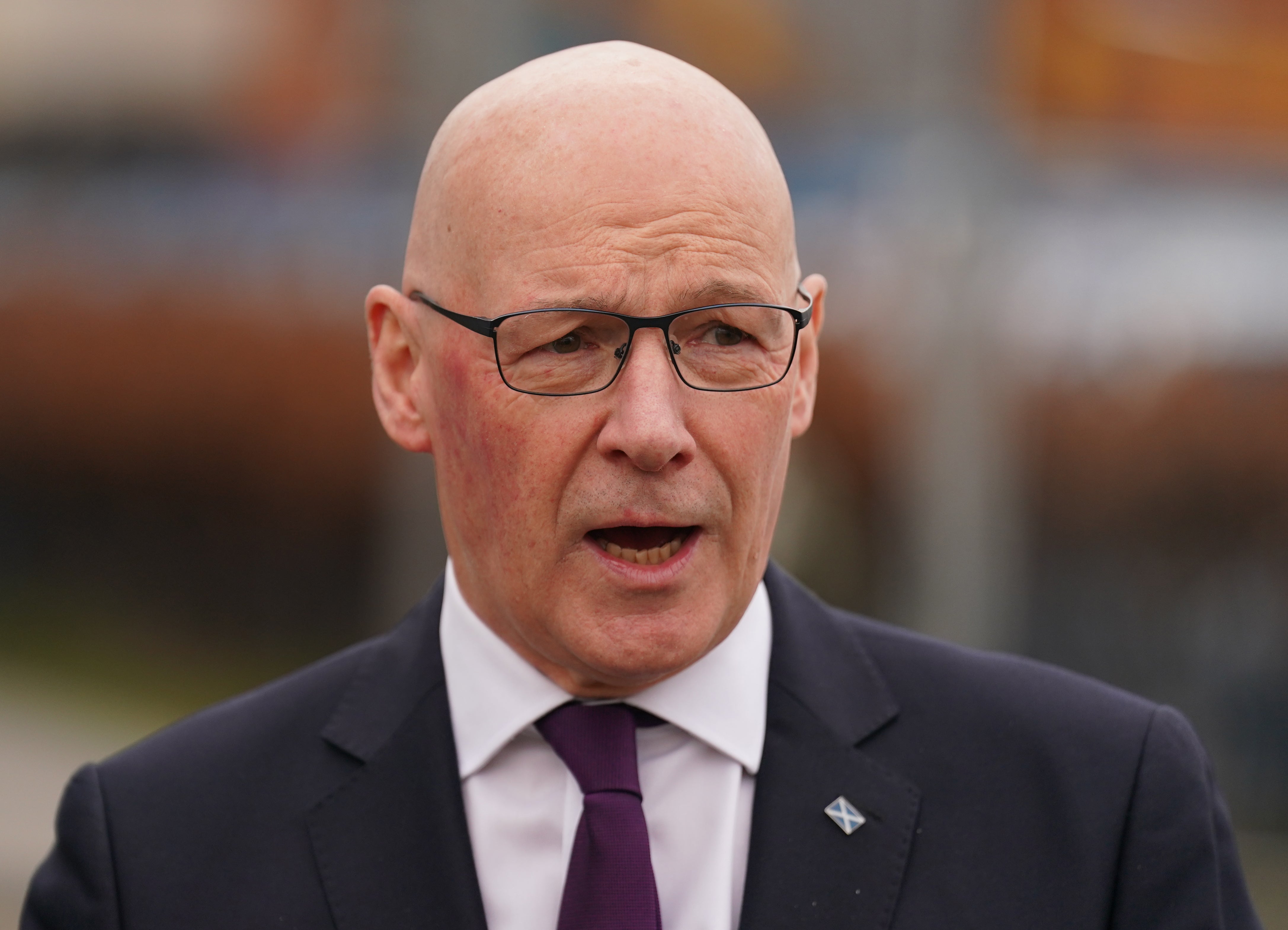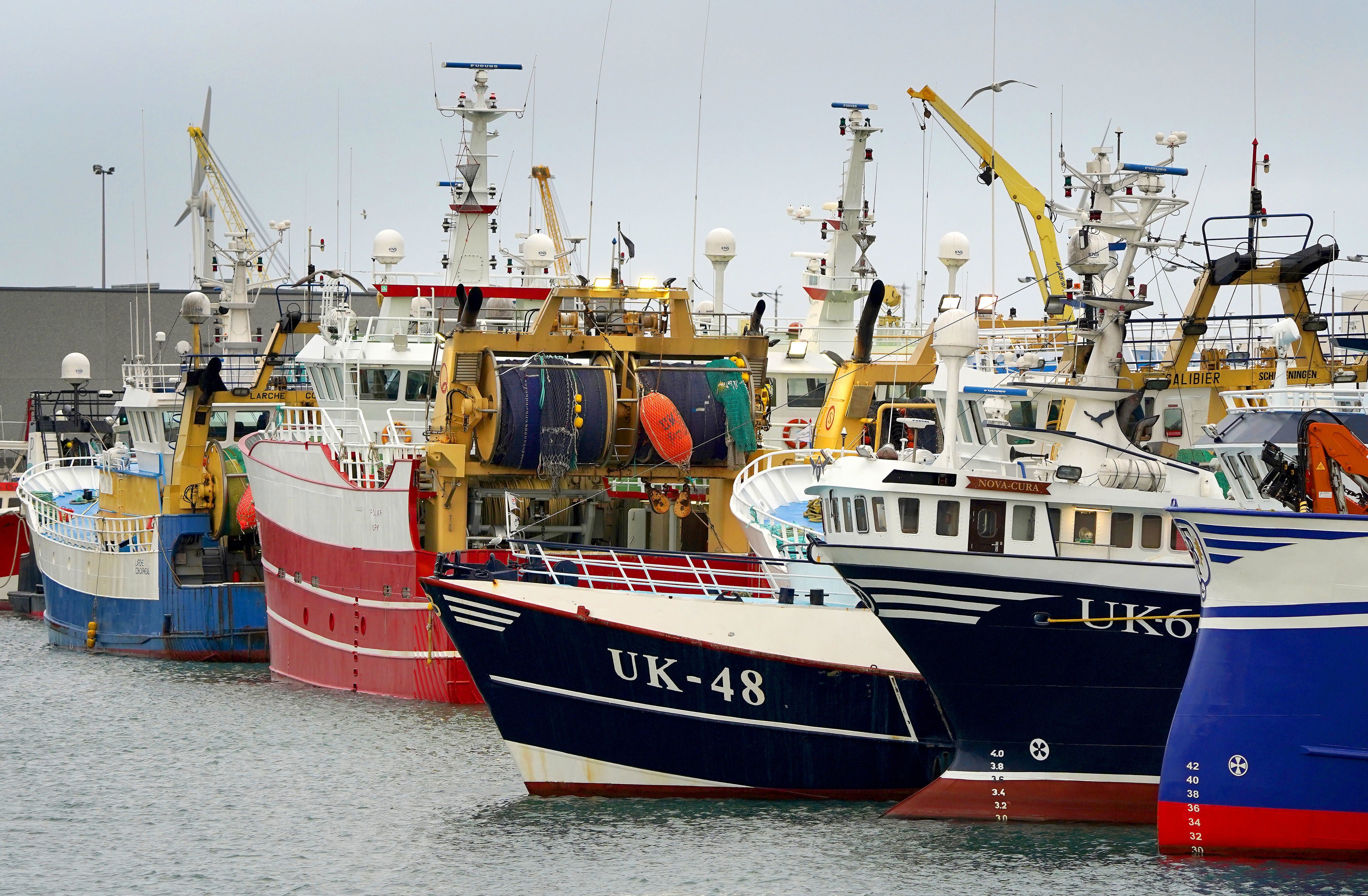Critics have branded Keir Starmer’s fishing deal with the EU “a horror show” for the industry after he granted European trawler fleets 12 years of access to UK waters.
The roll over of the existing fisheries deal to 2038 will benefit the British fishing industry, the prime minister has claimed, by allowing the sale of fish caught in UK waters to be sold in the EU without veterinary checks, removing a costly post-Brexit barrier.
Sir Keir has also unveiled a £360m fund to support fishing communities and modernise the British fishing fleet.
He told reporters on Monday: "It's time to look forward. To move on from the stale old debates and political fights to find common sense, practical solutions which get the best for the British people.”
But he faces another argument with the Scottish government after failing to consult them before signing his deal, which impacts Scottish fisheries.
The Scottish Fishermen's Federation (SFF) branded the UK-EU deal a "horror show" for the sector, while Scottish constitution secretary Angus Robertson blasted the UK for agreeing a fisheries deal in principle "without any recourse, involvement or approval of devolved administrations".
However, government sources have briefed that UK hands were tied because the Windsor Framework Agreement struck last year by Rishi Sunak meant the UK would have to negotiate fishing rights at the same time as access to the energy market.
The core elements remain unchanged from the Conservatives’ post-Brexit fisheries deal, first implemented in 2020, and continues to allow EU fishermen access to UK waters.
However, Tory Party leader Kemi Badenoch claimed that the fishing agreement was three times longer than the government wanted.
But Richard Kilpatrick, head of campaigns at thinktank European Movement UK, said the certainty provided by the longer timeframe will benefit the industry.

“This will open a serious food deal with the EU, which is of huge benefit to all of us - including the fishing industry,” he told the Independent.
“Even if it is not quite what they wanted, [the fisheries deal] gives the industry certainty, which can guide their investment decisions - much clearer than returning to it every few years."
‘Betrayal’ over fisheries
The EU is still Britain’s top market for fish but since Brexit, the UK’s seafood exports have dropped by 26 per cent to just 336,000 tonnes in 2023 compared to 454,000 in 2019.

Both British and European fishermen working in UK waters are subject to quotas, meaning that they have an allocated limit of fish they can catch, called a “catch share”.
In the first post-Brexit fishing deal, agreed in 2020, the government wanted European fishermen to give up 80 per cent of their catch in British waters. In the end, however, the EU gave up just 25 per cent of its catch share.
This meant that the UK’s catch share increased by just under 10 per cent, according to think tank UK in a Changing Europe.
The great British burger: a food deal with the EU
Sir Keir announced that the UK has struck a new Sanitary and Phytosanitary Agreement (SPS) with the EU, a boon for British food exporters who have suffered since Brexit.
The deal will “make food and agricultural trade with the EU cheaper and easier”, Sir Keir said, allowing exporters to sell “great British burgers, shellfish, and other products” into the EU market.
The SPS deal will also benefit UK consumers, by making it easier to stock EU food products and fresh produce in supermarkets.
Food and agricultural trade has been tempestuous since Brexit, with layers of red-tape bureaucracy leading to reports of food rotting at the border and lack of fresh produce on UK shelves.
Minister gives verdict on rejoining EU after ‘win-win’ Brexit reset deal: Live
From fishing to e-gates: The key takeaways from Starmer’s Brexit deal
Tories face wipeout as they drop to fourth place in major poll for the first time
Government defeated for third time in Lords over copyright protection against AI
Readers praise Brexit deal: ‘Britain can act like a grown-up again’
Starmer under fire for missing ‘open goal’ on youth mobility in post-Brexit reset







